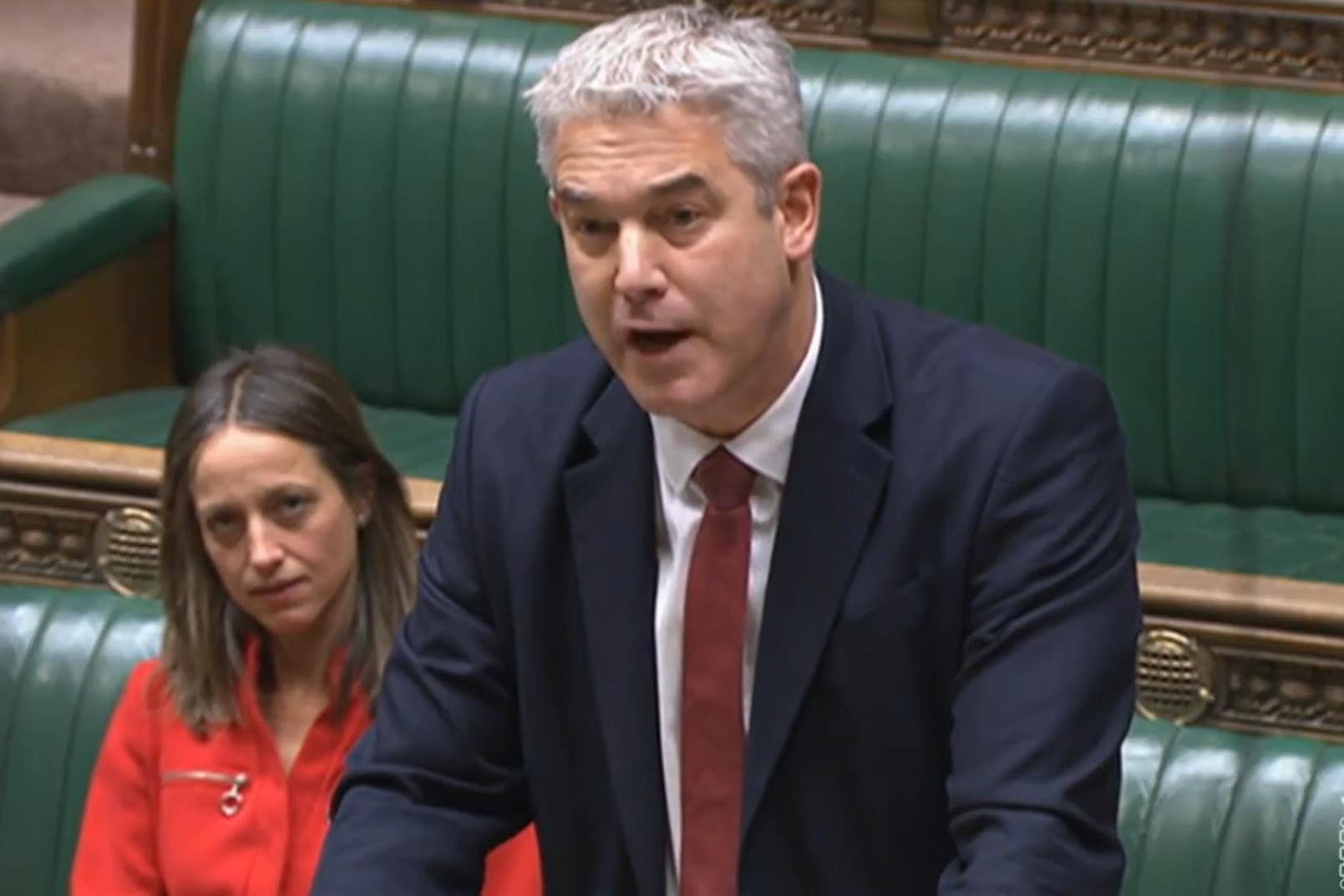Health Secretary admits emergency care has ‘not been acceptable’ in recent weeks
Steve Barclay told the Commons: “I and the Government regret the experience for some patients and staff.”

Your support helps us to tell the story
From reproductive rights to climate change to Big Tech, The Independent is on the ground when the story is developing. Whether it's investigating the financials of Elon Musk's pro-Trump PAC or producing our latest documentary, 'The A Word', which shines a light on the American women fighting for reproductive rights, we know how important it is to parse out the facts from the messaging.
At such a critical moment in US history, we need reporters on the ground. Your donation allows us to keep sending journalists to speak to both sides of the story.
The Independent is trusted by Americans across the entire political spectrum. And unlike many other quality news outlets, we choose not to lock Americans out of our reporting and analysis with paywalls. We believe quality journalism should be available to everyone, paid for by those who can afford it.
Your support makes all the difference.Health Secretary Steve Barclay has expressed regret as he admitted emergency care has “not been acceptable in recent weeks” for some patients and staff in England.
Mr Barclay said the “worst flu season for 10 years” has made this winter “particularly tough”, before he outlined a series of measures to alleviate the crisis in the NHS.
He said the Government will spend up to £200 million buying thousands of extra care home beds to speed up the discharge of hospital patients and reduce the strain on hospitals.
There’s no question it has been an extraordinarily difficult time for everyone in health and care
Mr Barclay also confirmed £50 million additional capital funding for hospitals.
Labour branded the policies a “sticking plaster”.
Making a statement on NHS winter pressures, Mr Barclay told the Commons: “I and the Government regret the experience for some patients and staff in emergency care has not been acceptable in recent weeks.
“I’m sure the whole House will join me in thanking staff in the NHS and social care who have worked tirelessly throughout this intense period, including those clinicians in this House who have worked on wards this Christmas, including my honourable friend, the minister for mental health (Maria Caulfield) and the shadow minister for mental health (Rosena Allin-Khan).
“There’s no question it has been an extraordinarily difficult time for everyone in health and care. Flu has made this winter particularly tough. First, because we’re facing the worst flu season for 10 years.”
Let me say what the Health Secretary and Prime Minister refuse to admit - the NHS is in crisis, the biggest crisis in its history
Mr Barclay said the number of people in hospital with flu this time last year was 50, but this year it was “over 5,100”.
He added: “And these flu pressures come on top of Covid, with over 9,000 people in hospital with Covid, while exceptional levels of scarlet fever activity and an increase in Strep A has created further pressure on A&E.
“And all of this, of course, comes on top of a high historic starting point. So we didn’t have a quiet summer with the significant levels of Covid and delayed discharges more than double what they were during the pandemic.
“So the scale, the speed, the timing of our flu season has combined with the ongoing high level of Covid admissions in hospital and the pandemic legacy of high delayed discharge to put real strain on frontline services.
“Since the NHS began preparing for this winter, there was a recognition that this year had the potential to be the hardest ever. That is why there was a specific focus on vaccination.”
Mr Barclay said an emergency recovery plan for the NHS had been drawn up, with the aim of addressing three areas: the immediate crisis, preparing for next winter, and longer term prevention of ill health to safeguard the system.
Some of the strain on the NHS comes from around 13,000 people occupying hospital beds in England – despite being medically fit to discharge – because they need further care before going home.
The Government plans to book beds in residential homes, boost capacity in A&Es, and stop inspections of emergency staff to ease the immediate NHS crisis, Mr Barclay said.
He also pointed to the “incredible potential of virtual wards”, which involve treating people at home but enabling them to return to hospital if their condition deteriorates, as part of efforts to prepare the NHS for the summer and next winter.
Rather than new bed funding coming from the Treasury, the Department of Health and Social Care (DHSC) said up to £200 million will be redirected from existing health budgets to fund the scheme.
The additional £50 million from DHSC’s capital budget will be used to expand hospital discharge lounges and ambulance hubs to help tackle queues of paramedics waiting to hand over patients.
For Labour, shadow health secretary Wes Streeting raised the case of an 83-year-old dementia patient having to wait in the back of an ambulance for 26 hours outside a Plymouth hospital last month.
He said: “His family found him in urine-soaked sheets and since arriving in hospital he’s contracted flu. His daughter said of the hospital staff, ‘They’re polite, they’re caring and they’re trying their best, it’s just impossible for them to do the work they want to do.’
“So let me say what the Health Secretary and Prime Minister refuse to admit – the NHS is in crisis, the biggest crisis in its history – it’s clear to the staff who have been slogging their guts out over Christmas, it’s clear to everyone who uses the NHS as a patient, the only people who can’t see it are the Government.
“What has been announced today is yet another sticking plaster when the NHS needs fundamental reform.”